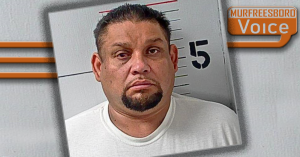State Senator John Stevens of Huntingdon and State Representative Patsy Hazlewood of Signal Mountain want to ensure that victims of crime have equal, constitutional rights on the same level as those accused and convicted of crimes. That’s why they are introducing a constitutional amendment this legislative session to strengthen the rights of crime victims in Tennessee’s state constitution.
Representative Hazlewood took the first step Thursday by introducing House Joint Resolution 44, known as Marsy’s Law. A similar bill generated the broad support of co-sponsors, organizations, and advocates across the state during the last session.
“It is critical that we continue to fight for Tennessee’s most vulnerable, especially at a time when crime is rising and so many are suffering,” said Representative Hazlewood. “Under current law, the rights of victims are not always enforced. Marsy’s Law would guarantee victim protections in the state’s most powerful legal document.”
More than twenty years ago, 89 percent of Tennesseans voted to give crime victims the rights they deserve by adopting a Crime Victims’ Bill of Rights. But unfortunately, victims too often find these rights unenforceable under current law and the rights of victims are not always protected.
The bill presented by Senator Stevens and Representative Hazlewood would update the current language to spell out clear, enforceable rights and protections for victims in our state constitution. If passed in two consecutive legislative sessions and signed by the governor, the constitutional amendment guaranteeing these protections would be placed on the 2026 ballot for voters to approve.
“We plan to work to strengthen the constitutional rights of victims of crime,” said Senator Stevens. “Victims need our support and deserve greater protection. That’s why we are working together with victims, law enforcement, and our colleagues from all across the state to pass Marsy’s Law.”
Tina Gregg’s daughter, Brooke Morris, was stalked and murdered by her ex-boyfriend and boss in 2011. She was shot three times while running for her life on the side of a Roane County road. Her body was found by a passing driver. Tina was never notified when the man charged with her daughter's murder left the state. She instead had to find out on Facebook.
“It’s been 10 years since Brooke was stolen from our family and the pain never goes away,” Tina Gregg said. “But we find comfort in honoring her legacy by fighting to make sure the legal system doesn’t add any more pain to victims and their families. I strongly encourage our lawmakers to pass Marsy’s Law in Tennessee.”
Adopting Marsy’s Law in Tennessee will provide victims with the ability to assert the critical rights to which they are promised including:
-
The right to be treated with fairness for the victim's safety, dignity, and privacy;
-
The right, upon request, to reasonable and timely notice of, and to be present at, all criminal public proceedings and all juvenile delinquency proceedings involving the accused;
-
The right to be heard in any proceeding involving release, plea, sentencing, disposition, and parole, as well as any public proceeding when relevant during which a right of the victim is implicated;
-
The right to be free from harassment, intimidation, and abuse throughout the criminal justice system, including reasonable protection from the accused or any person acting on behalf of the accused;
-
The right, upon request, to reasonable notice of any release, transfer, or escape of the accused or convicted person;
-
The right to full and timely restitution from the offender;
-
The right to a speedy trial or disposition and a prompt and final conclusion of the case after the conviction or sentence;
-
The right, upon request, to confer with the prosecution;
-
The right to be fully informed of all rights afforded to crime victims.
About Marsy’s Law
Marsy’s Law is named after Marsalee “Marsy” Nicholas of California who was stalked and killed by her ex-boyfriend in 1983. Only one week after her death, Marsy’s mother and brother, Henry T. Nicholas, walked into a grocery store where they were confronted by the accused murderer. The family, who had just come from a visit to Marsy’s grave, was unaware that the accused had been released on bail. In an effort to honor his sister, Dr. Nicholas has made it his mission to give victims and their families constitutional protections and equal rights. He formed Marsy’s Law for All in 2009, providing expertise and resources to victims’ rights organizations nationwide.












